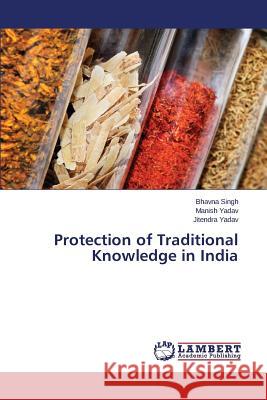Protection of Traditional Knowledge in India » książka
Protection of Traditional Knowledge in India
ISBN-13: 9783659775574 / Angielski / Miękka / 2015 / 136 str.
Traditional Knowledge is one intellectual property that never got recognition and place, neither in the International statutes nor in the domestic ones. There is no as such codified law neither much published work about it but being a need of hour it has become important to bring some real laws for the protection of the rights of the people who impart such valuable knowledge from the people who make profits out of it for free without giving any share or benefits out to the real source i.e the indigenous people. This book therefore is of importance to the policy makers, researchers and lawyers in general, and not just in the procurement field. More specifically, it is hoped that the results will bring new changes in the IPR sector by bringing some codified law for the protection of the rights of the indigenous people. The findings will also have implications for the design of enforcement systems under other international arrangements. It is hoped that this book will be useful to students, academicians and members of legal fraternity. This book is an attempt to give recognition to the traditional knowledge as an Intellectual Property Right.
Traditional Knowledge is one intellectual property that never got recognition and place, neither in the International statutes nor in the domestic ones. There is no as such codified law neither much published work about it but being a need of hour it has become important to bring some real laws for the protection of the rights of the people who impart such valuable knowledge from the people who make profits out of it for free without giving any share or benefits out to the real source i.e the indigenous people. This book therefore is of importance to the policy makers, researchers and lawyers in general, and not just in the procurement field. More specifically, it is hoped that the results will bring new changes in the IPR sector by bringing some codified law for the protection of the rights of the indigenous people. The findings will also have implications for the design of enforcement systems under other international arrangements. It is hoped that this book will be useful to students, academicians and members of legal fraternity. This book is an attempt to give recognition to the traditional knowledge as an Intellectual Property Right.











